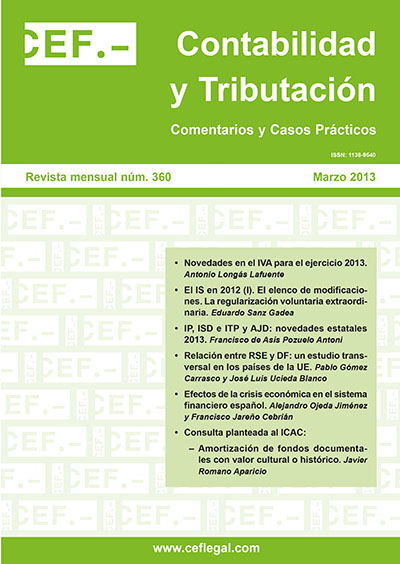El Impuesto sobre Sociedades en 2012 (I). El elenco de modificaciones. La regularización voluntaria extraordinaria
DOI:
https://doi.org/10.51302/rcyt.2013.6357Palabras clave:
Impuesto sobre Sociedades, regularización voluntaria extraordinaria, declaración tributaria especial, amnistía fiscal, declaración extemporáneaResumen
La presente colaboración, después de dar cuenta de las normas que durante el año 2012 han afectado al Impuesto sobre Sociedades, se centra en la regularización voluntaria extraordinaria de la situación fiscal mediante la declaración tributaria especial prevista en el Real Decreto-Ley 12/2012.
Popularmente denominada amnistía fiscal, la regularización voluntaria extraordinaria de la situación fiscal es, ante todo, una operación de política fiscal de gran envergadura que incide en los impuestos personales, en las normas generales que rigen la aplicación de los tributos y en los aspectos sancionadores, incluso penales, inherentes a dicha aplicación.
No obstante el presente artículo se limita, en lo esencial, a analizar la declaración tributaria especial desde la perspectiva del Impuesto sobre Sociedades, pero también sugiere que hubiera sido posible alcanzar semejantes resultados recaudatorios y de saneamiento fiscal mediante la declaración extemporánea prevista en la Ley General Tributaria, provista de los estímulos que han acompañado a dicha declaración tributaria especial.
















